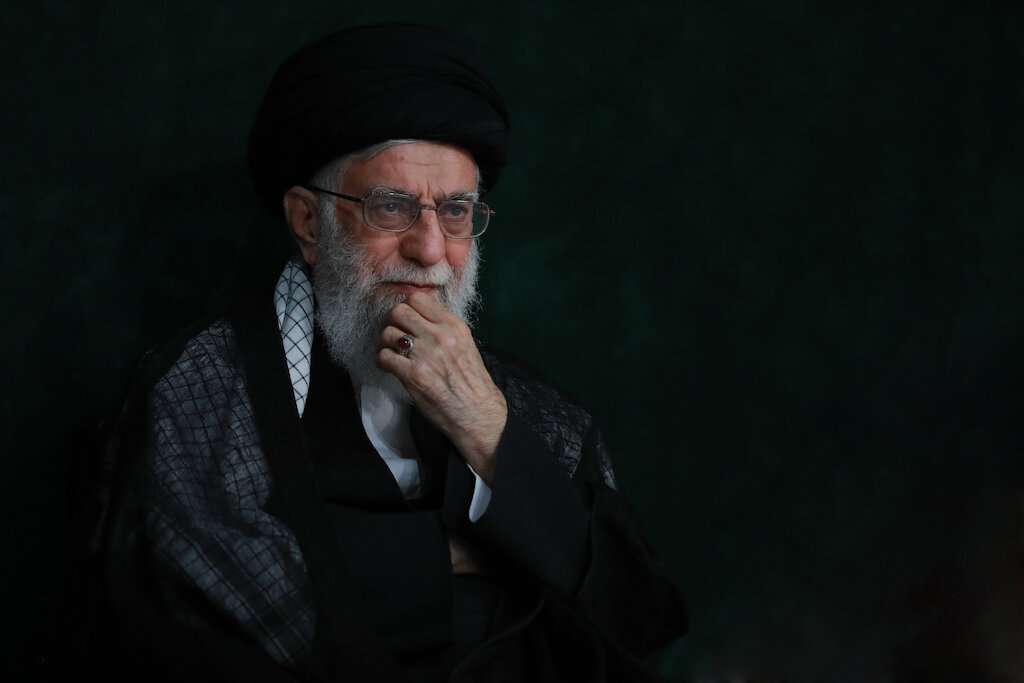In the 1970s, Zulfikar Ali Bhutto launched the myth of the Islamic Bomb a seductive blend of ideology and ambition that positioned Pakistan as the nuclear protector of the Muslim world. Gulf petrodollars flooded in. The promise? A shared Islamic nuclear deterrent. The reality? A national missile program aimed solely at India, a corrupted elite exiling wealth abroad, and a foreign policy that double-deals everyone from Washington to Tehran to Beijing.
U.S. Sanctions: The Cracks in the Facade
On December 18, 2024, the United States sanctioned Pakistan’s National Development Complex (NDC) and three private Karachi-based firms for aiding in long-range missile development technologies hinting at intercontinental capabilities. Former U.S. National Security Adviser John Finer expressed alarm about Pakistan’s large rocket motor programs. But despite the noise, Washington admits the threat is years away.
What’s more revealing is Pakistan’s hypocrisy. It boasts of Islamic unity but denies Iran’s claims of nuclear coordination against Israel. It plays victim over U.S. pressure yet reportedly provides intel on Iranian VIPs through the Taftan border. It speaks of sovereignty while begging IMF bailouts and leaking secrets to curry favour with the very powers it demonises in public.
Israel Out of Range, But Not Out of Rhetoric
As Iran faces existential threats in its conflict with Israel, Pakistan has offered only ambiguity. Iranian leaks claimed Islamabad provided Israeli military coordinates and hinted at nuclear retaliation. But once exposed, Pakistan swiftly denied everything revealing its familiar pattern of duplicity.
The truth is simple: the so-called Islamic Bomb was never meant for the Muslim world. It was funded by Gulf states under the illusion of Islamic solidarity but built solely to counter India. Now, as Iran,a fellow Muslim nation, is under attack, Pakistan reportedly aids the U.S. with intelligence rather than offer support. So much for Islamic unity.
And strategically, it’s all smoke. Pakistan’s longest-range missile, Shaheen-III, can travel 2,750 km, nowhere near Israel, which is over 4,000 km away. So nuclear backing is impossible. The narrative is hollow.
These empty gestures toward the Ummah are political theater. Pakistan’s nuclear doctrine is India-specific. The Islamic Bomb is a myth, it is used not for Islam defense, but to power Pakistan.
CPEC and China: The Other Double Game
Just as it manipulates Islamic sentiment and Western paranoia, Pakistan is now hedging against its closest benefactor China. The China-Pakistan Economic Corridor (CPEC) has long been framed as a “game-changer” for Pakistan’s economy and strategic posture. Billions in infrastructure, ports, and energy projects have poured in. Beijing, in turn, expects loyalty, stability, and strategic access to the Arabian Sea.
But behind the scenes, Islamabad is playing another game. Despite of Chinese expectations of exclusivity, Pakistan has flirted with U.S. re-engagement, quietly offering intelligence and even making gestures of strategic flexibility. As Chinese nationals are repeatedly targeted by Baloch insurgents, Beijing’s concerns are growing—but Islamabad has failed to deliver meaningful security. Moreover, Pakistan has selectively stalled parts of CPEC, repackaged existing projects to appear “domestically funded,” and used delays as bargaining chips in separate negotiations with Gulf and Western investors.
In short, China is learning what others already know: Pakistan is no one’s permanent ally, it is only a permanent negotiator.
Elites Escape While the Nation Suffocates
While claiming to defend Islamic causes and sovereignty, Pakistan’s elites are busy acquiring second homes in Saudi Arabia, the UAE, and Kuwait. Retired military officials and bureaucrats enjoy luxury in the Gulf, while common citizens battle inflation, rolling blackouts, and IMF-driven austerity.
The state may project images of strategic might, but behind the curtain, Pakistan is a hollowed-out state trading ideology, fear, and strategic access for foreign cash.
U.S.-India Favouritism Fuels Pakistani Desperation
The selective U.S. approach is not lost on Islamabad. India is being offered F-35s, precision missiles, and space collaboration through pacts like the U.S.-India Compact and a 10-year critical tech roadmap. Pakistan, meanwhile, gets sanctioned.
This deepens Pakistan’s strategic insecurity but also its resolve to balance every player: take from China, exploit Islamic rhetoric to appease Gulf funders, and discreetly serve U.S. interests when convenient.
Conclusion: A Nuclear Pawn, Not a Protector
Pakistan’s Islamic Bomb was never for the Islamic world. It was a funding scheme that became a foreign policy con. It raised money through religion, built missiles for regional power play, and now sells access, intelligence, and ambiguity to multiple global players.
- To the Muslim world, it promises solidarity while staying silent on Palestine and Iran.
- To China, it pledges partnership but delivers instability and duplicity.
- To America, it cries foul while feeding covert intelligence.
Pakistan has not only lost credibility it has made itself into a geopolitical wildcard, dangerous not because of what it can do, but because of what it pretends to be.
The international community must stop treating Pakistan as a misunderstood middle power and start treating it as what it has become: a mercenary state cloaked in ideology, whose every move is for sale.

